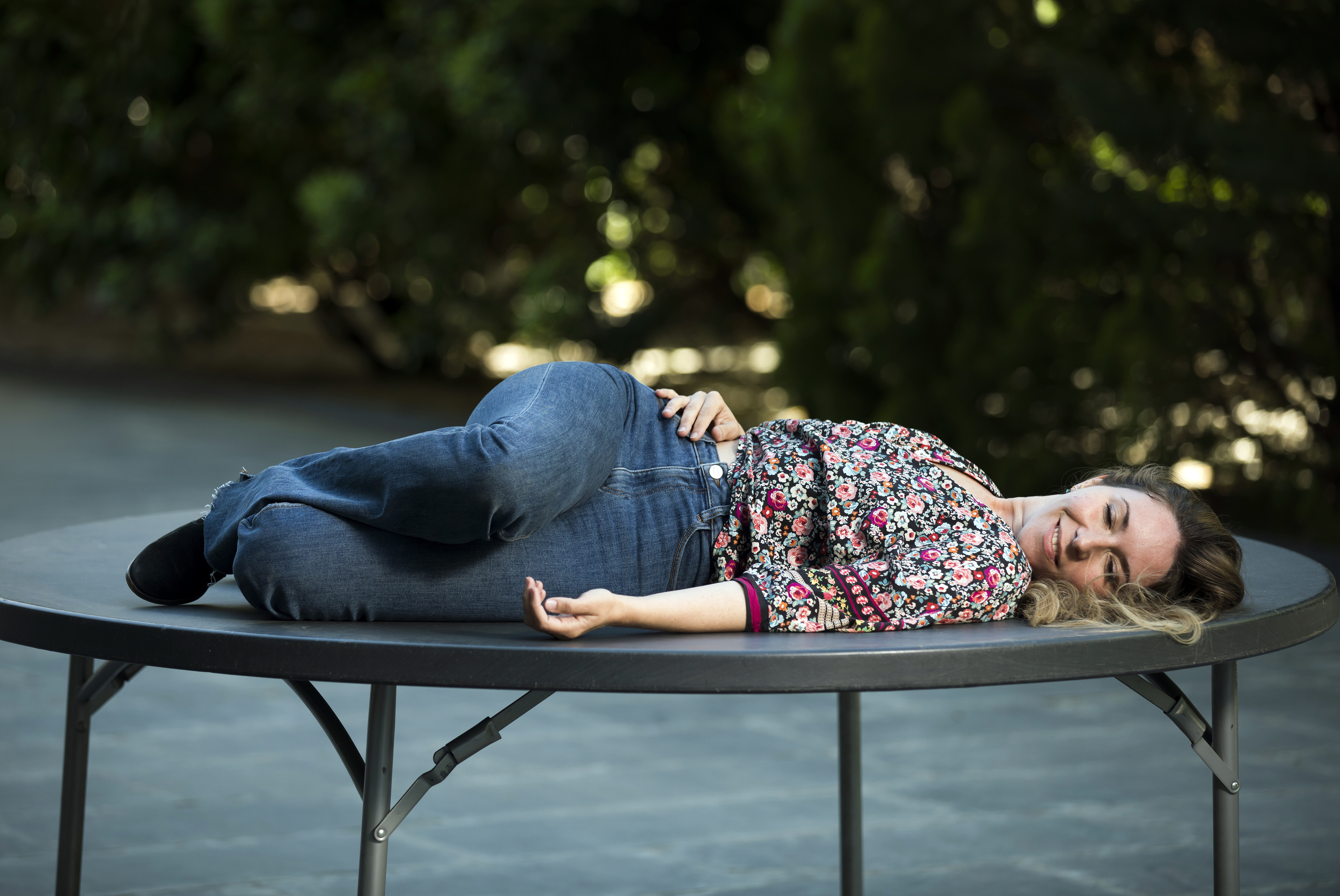Rocío Márquez Interview: "I learn from flamencos, the 'indies' and the rockers"
File "Happiness has nothing to do with what they sell us as success"
The cantaora
Rocío Márquez
(Huelva, 1985) began in flamenco along the most purist path.
Singing in competitions and flamenco clubs since she was a child, she won the Mining Lamp fourteen years ago at the
La Unión Festival
in Murcia, a classic of the most orthodox flamenco.
She delved into her art and did a doctoral thesis on vocal technique in flamenco.
She got A
Cum Laude
.
But soon he began to mix with other music and get on the same stages as jazz artists,
indie
or rock groups and also DJs.
"If not, I'll get bored", launches the cantaora.
But he had never gone as far as with his new album,
Tercer Cielo
(Universal), cooked over a very slow fire with urban and electronic music producer
Santi Gonzalo
,
Bronquio
.
Free flamenco from the electronic rebellion, if that's possible.
«Yes, it has been a
destabilizing trip
because, when you let go of what you know and allow yourself other things, a box opens up that is not controlled, but which is very flamenco.
Flamenco is not limiting, perhaps it was I who was limiting myself».
And Rocío let her hair down.
But, is this flamenco? At another time in my life, I would be determined to vehemently say yes, it is flamenco, but right now I don't have that need.
We have done it from that vision and we feel it and we defend it that way, but I respect all the opinions that may be generated because we defend an inclusive and diverse flamenco. Why is it flamenco? Because of the styles and melodies of flamenco and folklore, in addition to harmony, beat and lyrics.
That is the obvious, but above it is the attitude.
I told Santi that he was already flamenco before making this album, because of his attitude and viscerality.
But Santi, Bronquio, who comes from the world of
electronics and festivals
, lived completely oblivious to flamenco, although he was familiar with it because in his town, Jerez, there is a "cult" of this art and, if you have a
cousin who is a singer
, is something that "you can show off at school".
And flamenco is something that is there, floating in the environment: "in town festivals and in bars," admits Bronquio.
And, basically, there are
points of connection
between electronic music and flamenco.
«I have found links where apparently there are none, especially in folklore.
The palo de los verdiales has to do with the
party, the viscerality, the gap
... », illustrates Bronquio.
«And with the
rave
», adds Rocío, who perceives
the same energy
in both sound universes.
Rocío Márquez.JAVI MARTÍNEZ
By
blowing up the borders
between flamenco and electronics, Rocío Márquez and Bronquio have not tried to make a "search for originality" or a "show of avant-garde" because that mix is already "being done".
It is a "logical and contemporary" step because now the hegemonic is electronics.
«It is the tool that there is, to which the artists who start go.
Without electronics, flamenco dies
», says Bronquio.
Tercer Cielo
is full of literary and poetic references.
There are lyrics by contemporary authors, such as
Carmen Camacho
,
Macky Chuca
,
Luis García Montero
,
Antonio Manuel
or Rocío Márquez herself.
There are also
San Agustín
,
Lorca
,
Miguel de Unamuno
or
Antonio Mairena
himself .
Rocío Márquez and Bronquio have worked for
two years
on the album.
They spent entire weeks
shut up in
the cantaora's house, watching documentaries, listening to music, discovering groups and creating.
"With ups and downs."
It was in the post-pandemic, just after the hardest confinement of the coronavirus crisis.
"We didn't have a job, but we did have a lot of desire to create," Rocío clarifies.
For Bronquio, the 17 themes of
Tercer Cielo
, would not have been possible "not even a joke" in another ecosystem that had not been that one.
And, on top of that, "these collaborations are good to
tame the ego
and to learn," concludes Rocío.
And this electronic, mestizo,
rave
and root flamenco, where is it going to sound? I would like it to be at Sónar and at a flamenco club, which for me is something very exotic, although we may get a bottle of JB on our faces And Rocío doesn't like it very much.
But the cantaora replies «why not?».
Conforms to The Trust Project criteria
Know more
Huelva
Flemish
music
Electronic music

